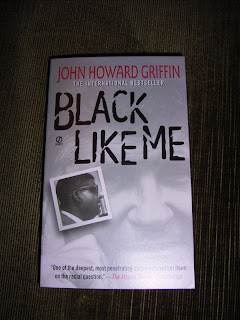
This chapter largely dealt with the prevalence of hate crimes and racial violence throughout time. For the most part, it focused on crime committed by white individuals against black individuals. As I was reading through this chapter, I was thinking to myself, "Have we improved our situation as a collective society?"
The reason why I ask this to myself is that as I read through this, I was wondering whether our society has become less violent towards other races over time. I wonder whether or not different outlets in the media may be encouraging violence in younger and younger people; and even in women. On YouTube, there is a rise in videos of young girls fighting each other, just so they can be seen as tough and hardcore by their peers. What makes women think that they have to be seen in this way? What makes people feel that they need to resort to violence against people they are prejudice against? I think that in the 1960's most people weren't necessarily prejudiced against black people, but it was a social normality that many just blindly accepted. When this happens, it's very difficult to change and improve the situation. Why do we accept these normalities? Do they make us feel more secure in our own skin? Do we feel more accepted by others of our own race if we collectively decide to isolate ourselves from another race?
Throughout this chapter, I kept thinking of a book I read over the summer entitled "Black Like Me," written by John Howard Griffin. It was published in 1961, and discussed the differences in treatment in the Deep South going first as a white man, and then as a black man. The differences and discrepancies between these races was extremely insightful. It gave you a look at both the blatant racism people felt towards blacks, but also the dark underbelly that wasn't as easy to comprehend and grasp. It is one of the best books I have ever read; it really made me look inside myself and come to terms with my own potential biases and assumptions. I never thought of myself as a racist person and I still don't, but this book really made me look deep inside myself and confront my own personal biases. This chapter really made me reflect on that book. I would highly recommend it to anyone who might be interested in that book. Here is a link to discountbooks.com, where it's available at a very reasonable price:
https://www.discountbooksale.com/store/productView.aspx?idProduct=7982&ec=1&ProdId=112&AWTrck=1036618299&gclid=CISs54TO85gCFR0SagodkS6L1g
Image from:
http://home.arcor.de/vivness/booksread/pl_images/117_blacklikeme.jpg




Its interesting to me because it seems like the idea of fearing the unknown has a lot to do with prejudices. Because some one is different than us and we don't understand or take the time to try to we become afraid and we learn to hate what we fear. In that way I feel like if people were more exposed to multiple cultures and races and sexualities as they grew up they would better understand the differences, but more importantly understand all of our similarities that make us all human.
ReplyDeleteAs it comes to just increasing violence in general I don't really know where it comes from. The incidents of you tube fights and such are a scary thing developing in our society that I don't understand. I don't think we can blame it on media because someone raised on violent media can be just as non violent as some one who wasn't or the other way around. I think maybe its more of teaching children to understand family values surrounding violence so that they can interpret media violence more through a lens their family gives them. I think that's where the strong influence really is, is through parents raising their children to see that violence isn't a necessary or effective way to solve your problems.